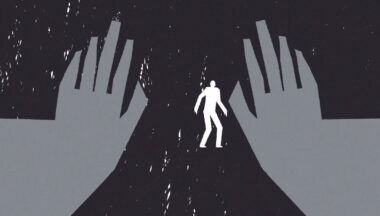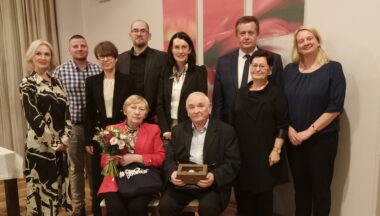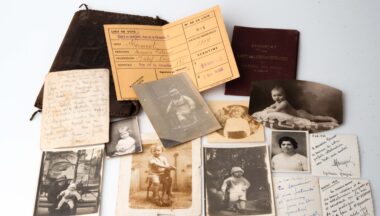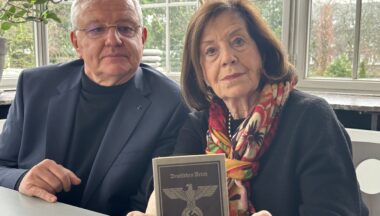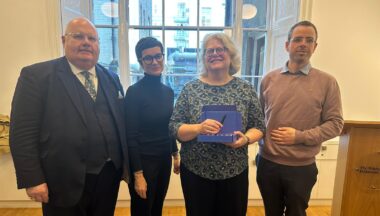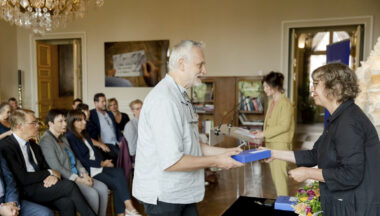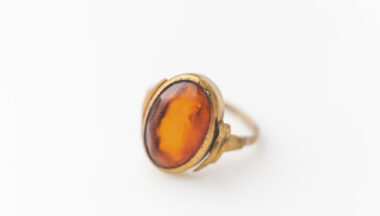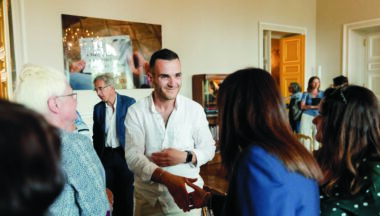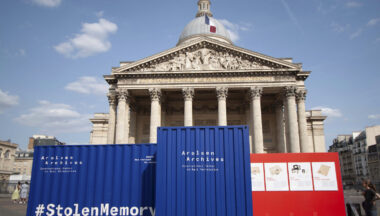Polish-Ukrainian #StolenMemory exhibition in Rzeszow
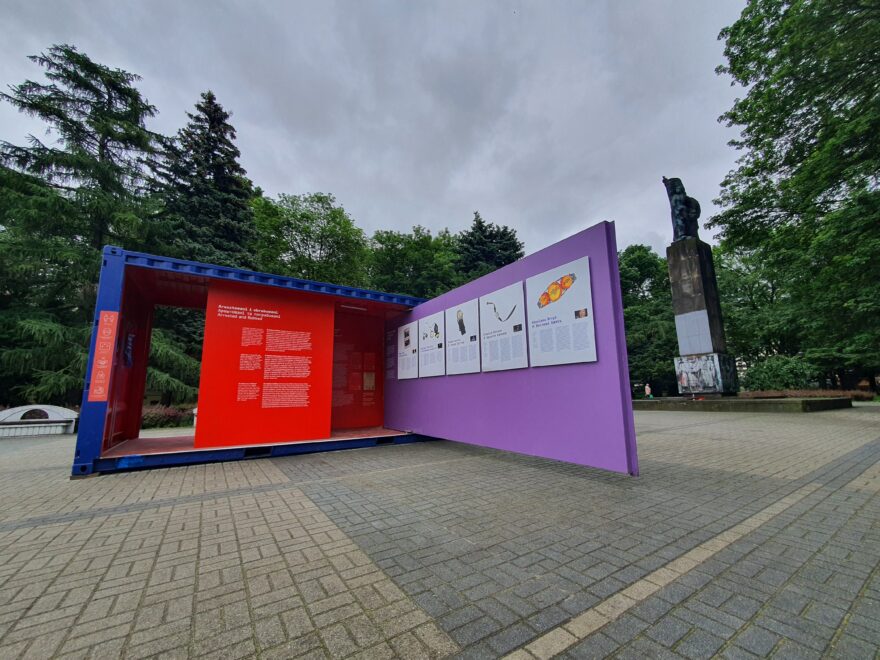
From June 7 onwards, a Polish-Ukrainian #StolenMemory exhibition can be seen in Rzeszow at the Square of Ghetto Victims.
Built in a shipping container, the exhibition depicts the fate of victims of German Nazi concentration camps from whom personal objects have been preserved. The latter mementos are being returned to relatives found as part of the Arolsen Archives’ #StolenMemory campaign. The exhibition is visiting cities in Poland thanks to financial support from the German Foreign Ministry and the US-American diplomatic missions in Germany and Poland.
Close to Ukraine
– Among the 2,500 personal effects, there are several hundred mementos belonging to people from Poland and Ukraine. We initially planned that the exhibition route would also include Ukrainian cities. Due to the outbreak of full-scale war, this obviously became impossible. We modified the route so that our #StolenMemory container visits cities near the Polish-Ukrainian border and larger cities in Poland where refugees fleeing the war found refuge,” explains Anna Meier-Osinski, Outreach Manager of Arolsen Archives.
All descriptions in the exhibition are available in Polish, Ukrainian and English.
Rzeszow is the first city close enough to the border to be reached by the mobile exhibition in 2023. The exhibition in the city is supported by the Action Reconciliation – Service for Peace Ukraine (ASF), the University of Rzeszow, Kultura w Rzeszowie, Rzeszowskie Piwnice, Rzeszów – stolica innowacji, as well as the honorary consul of Germany in Rzeszow, Ms. Agnieszka Buk.
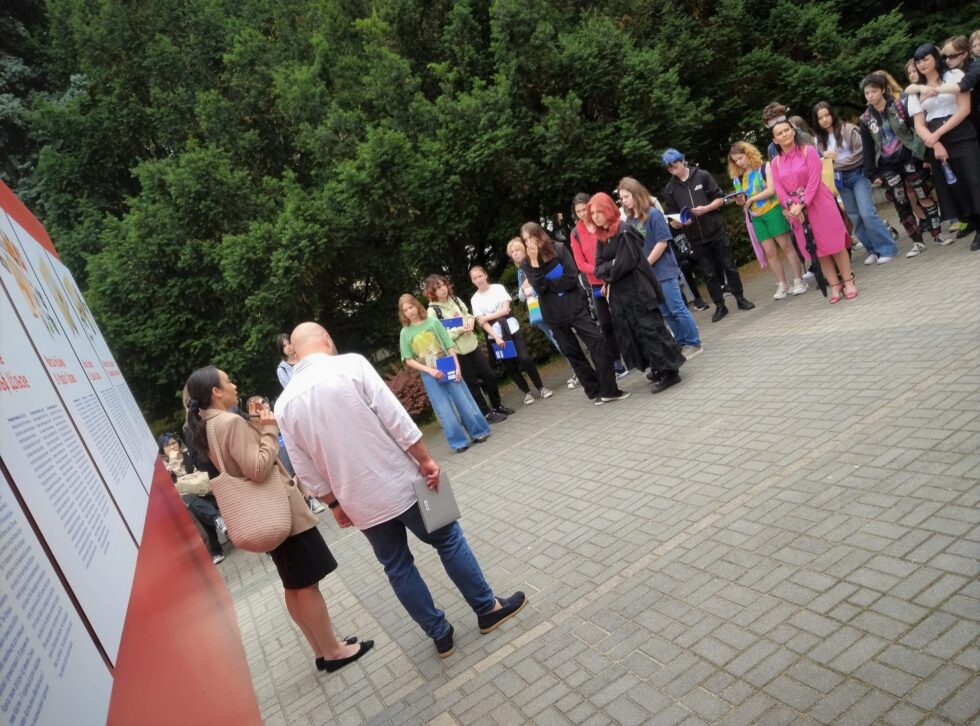
Open wounds
– Personal and family histories from World War II are still topical. For a long time, the Soviet regime issued an unnatural ban on remembering, recalling and searching for relatives who did not return home. This left open wounds in family memories. The lack of information and the void in memory created space for myths filling the void with ideological narratives that devalued family tragedy during the war, says Anzhela Beljak of ASF Ukraine.
– This was one of the causes of the new tragic war. And there is war again in Ukraine. Many people are repeating the fate of their relatives who died during World War II. Once again, there is a question about the role of the individual and the tragedy of the family during the war. Above all, it is the history of the family and the memory of our loved ones that help us to live on and discover a new meaning of life in this war,” she adds.
– Preserving these stolen family histories was only possible thanks to the hard work of Arolsen Archives’ staff. Over the years, they have been able to reconstruct the fate of prisoners and return their personal belongings to their families. With them, the memory of loved ones is returning, and gaps in family histories are being filled. The overall picture of the tragedy is thus being restored, showing the ruthlessness and senselessness of the current war in Ukraine,” says Anzhela Beljak.
“City-Rescuer”
– The #StolenMemory exhibition is an important and necessary initiative. It restores the memory and identity of those who experienced the hell of the concentration camps,” noted Zakia Cieślicka-Majka, head of the Cultural Dissemination Department from the Rzeszów City Hall.
She points out that it is Rzeszow, as the city that received the title “City of the Rescuer” created for partner cities that came to the aid of Ukraine and its citizens after the Russian invasion, and as one of the cities closest to the Ukrainian border that presents this difficult exhibition that shows the common experience of the two nations.
The exhibition is of great interest to Rzeszow residents and tourists. The place where it is exhibited, namely the Rzeszow Ghetto Victims’ Square with its memorial stone, the neighborhood of the Cichociemnych Square with the sculpture “Passage” according to drawings by Józef Szajnaof, and the memorial stone of Michal Stasiuk’s Called by Name, creates a peculiar story about the history and traumatic experiences of the Jewish, Polish and Ukrainian communities.
The series of educational walks, “Stolen Memories – the history of Rzeszow residents imprisoned in the camps,” which take place as part of the exhibition brings together young people and allows to pass on knowledge of Europe’s traumatic cultural heritage to the younger generation.
I invite you to the finissage of the exhibition combined with a walk “Stolen memories – the history of Rzeszowians imprisoned in camps”, which will be held on the Square of the Victims of the Ghetto in Rzeszow on 26.06.2023 (Monday) at 6.00 p.m.
We are looking for the family of Boleslaw Żurad
As part of the #StolenMemory campaign, we are looking for, among others, relatives of Boleslaw Żurad, born on 14.11.1922 in Hermanowa near Rzeszow. On November 6, 1940, German occupiers arrested the 17-year-old and deported him to Dachau concentration camp. The prisoner registration form noted that he was a blacksmith, unmarried and of the Catholic faith at the time of his arrest. On December 13, 1940, he was deported by the Nazis to the German concentration and extermination camp at Auschwitz. Boleslaw was registered in the camp’s prisoner hospital in July 1942 and was taken to Neuengamme concentration camp in March 1943. There he had to perform forced labor. His further fate remains unknown. The Arolsen Archives preserve a white pocket watch that Boleslaw Żurad had with him when he was taken prisoner.
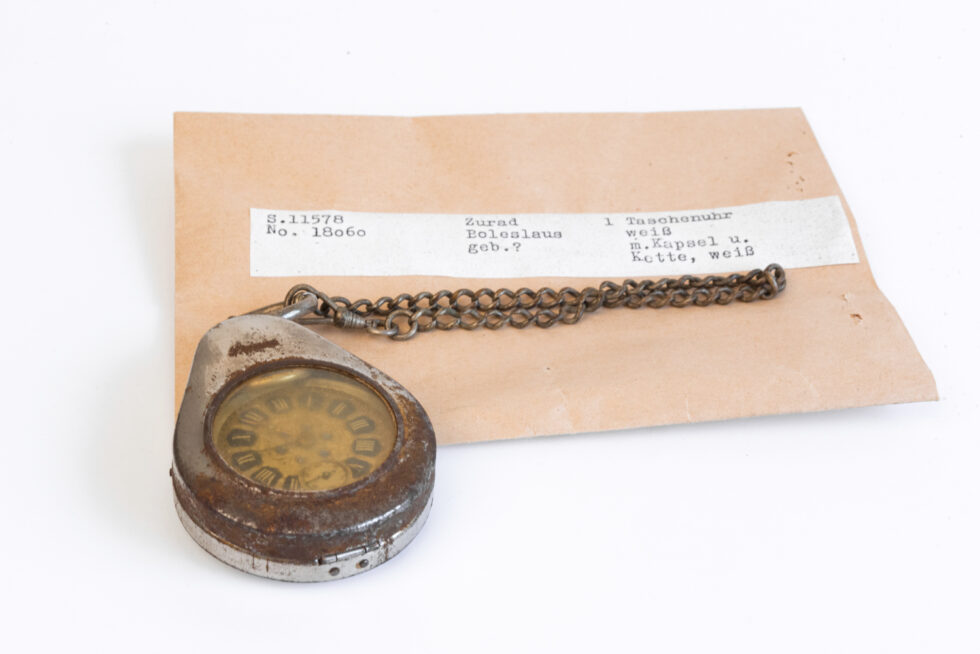
Information on the location and opening hours of the exhibition
Place: Ghetto Victims Square, 35-064 Rzeszow
Time: June 7-26, 2023
Opening hours:
Monday – Friday 10:00 a.m. – 6.00 p.m.
Saturday – Sunday 10:00 am – 6:00 pm

